Reagan created the model for Trump. Reagan flipped the media industrial complex in America on its head and was not just a hero to the Republican Party; he was a hero to American media. Matt Trynauer, director of the documentary series “The Reagans,” joins Paul Jay on theAnalysis.news. This interview was originally published on March 31, 2021.
Reaganism is the Model for Trumpism – Matt Tyrnauer, director of ‘The Reagans’ pt 1/5
Ronald Reagan: The Face of Racism & the Military-Industrial Complex – Matt Tyrnauer (pt 2/5)
Reagan’s Racism the Model for Trump – Matt Tyrnauer (pt 3/5)
Ronald Reagan: “Small Government” a Smoke Screen for Racism and Smashing Unions – and Host, Paul Jay (pt 4/5)
Paul Jay
Hi, I’m Paul Jay. Welcome to theAnalysis.news. Please don’t forget there’s a donate button at the top of the webpage, and if you’re watching on YouTube, there’s a subscribe button somewhere there, and we’ll be back in a second.
Now, joining me to conclude our discussion about his Showtime documentary series The Reagans is Matt Tyrnauer, who’s also the filmmaker of Valentino: The Last Emperor, which was shortlisted for an Academy Award for best documentary feature, and Where’s My Roy Cohn? another must see if you want to understand the political forces that gave us Trump and today’s political culture. Thanks for joining us again, Matt.
Matt Tyrnauer
Thank you.
Paul Jay
To start with, I want to talk a bit about how the media, particularly the news media, covered Reagan at the time and helped build this Reagan mythology. Here’s a clip from the documentary.
excerpt from “The Reagans”
Our job with Presidents is to hold their feet to the fire. I was encouraged to be very tough at the White House, but when Reagan came in, my bosses changed direction. They were taking out things that sounded like criticism, removing them. Everybody was afraid to contradict him. The media was gentler on Reagan because of public opinion, I think. Reagan knew exactly how to play on the feelings of the American public.
Paul Jay
Further in the documentary there’s another clip.
excerpt from “The Reagans”
Reagan’s success was in part because he was the ultimate pitchman, and this is important to understand. Ronald Reagan’s ultimate sales pitch wasn’t to the American people, it was to journalism. He completely flipped the media industrial complex in America on its head, and by the time he left office in 1988, he was not just a hero to the Republican Party, he was a hero to American media because he had given them the sort of televised president that they had always wanted to see.
Paul Jay
When I heard that clip, which I believe is Lesley Stahl now with 60 Minutes, I was just floored that she could say such a thing without embarrassment. I mean, why didn’t she quit? Why didn’t she protest their editing her pieces, her bosses to make Reagan look better? I mean, that’s crazy stuff.
Matt Tyrnauer
Well, as Jason Johnson says in the clip you just showed, Reagan was the televised presidency that the networks and the media industrial complex, which then was dominated by TV news, because this was pre-Internet remember, really wanted. There had been a big intermission from Kennedy, who was at the dawn of the age of television to Reagan, and the presidencies in between were not very telegenic. In fact, they were decidedly untelegenic.
Paul Jay
They were very radio.
Matt Tyrnauer
Well, you know, LBJ to Nixon, to Ford, to Jimmy Carter. I mean, you can’t have four bigger duds, actually, than that in the TV era. Reagan was, for those of your listeners and viewers who haven’t been watching the previous three parts, a movie star and a television star and a radio star before he became a politician and he had those skills.
Those were the skills he had, and he also did have a coherent political message, one that was dangerous and repugnant, but it was still rather coherent and dumbed down in an appropriate way for television and radio, and it helped him enormously, and I think actually, if you’re going to find something praiseworthy about Reagan and his skill set and as a model for modern politics that certainly Bill Clinton and Barack Obama have looked at and followed, it’s that you cannot be a modern president without having some TV cue, if you will, some skills and chops, and Reagan was the apotheosis of that for the time. What Leslie Stahl is saying there is frightening. I don’t think she should have up and quit, probably, but I do give her credit for acknowledging it not only in my movie, in my series, but she also did in the book, she wrote an autobiography.
What had happened was very significant, actually. It was the end of the golden age of TV news, which was the Cronkite era, the John Chancellor era, and the networks abdicated what was called the public trust, which was really defined by a man named Newton Minow who was the head of the FCC. I think he’s still around and was, in fact, a mentor to Barack Obama as a Chicago lawyer.
And Minow really kind of set the framework that the networks, if they were going to have these licenses to broadcast and to have affiliated stations, needed to treat their news divisions as a public trust, which the implication was they wouldn’t be for profit enterprises. That changed, I think, by regulation, and I think Reagan even ushered that along and the premise completely shifted and the networks were cut loose and news divisions became nakedly for profit, and that means ratings, and they were no longer interested in doing meditative pieces, having dry commentary on what was perceived as dry commentary.
You had people like Eric Sevareid and John Chancellor later doing commentaries. Cronkite even occasionally did commentaries. They were kind of magisterial, and there was a consensus that gathered around these sort of figures of authority. All of that fell apart and they brought in local news talent at the managerial level. And those are the people Lesley Stahl are citing.
It coincided with the Reagan presidency and he was a ratings machine for these network producers and his staffing, Mike Deaver specifically, Nancy Reagan, who were kind of in charge of image making, produced TV segments that the networks swallowed whole and put up on the air, and I think what Lesley Stahl was seeing and is telling us valuably there is that the whole game changed. It changed in Reagan’s favor, and I believe it was the precursor to Trump.
I mean, Trump was nothing but a packaged television show, reality show, which was an opiate for the masses, and Reagan was the pioneer of that. Trump certainly understood that and looked to the Reagan presidency. Think what you will of Reagan and his politics and his presidency. They nailed that and they were very conscious of it. I mean, another footnote to this, I think the precursor that was in 68 when Roger Ailes, who was the producer of The Mike Douglas Show, became Nixon’s media adviser and tried to take perhaps the worst TV president in modern history and make him into a sort of politician with a crafted message.
They were trying to build a TV image around Nixon. The commercials they managed to produce were effective. Nixon was so bad and inept and awkward on television. I think it was sort of a wash, but Ailes, who went on to, of course, found Fox News, had this premise, and again, think what you will of Roger Ailes, and I think very little of him, and I think he’s one of the great villains of modern American history. He understood that and he founded that theory.
Paul Jay
I would put a little addition on what you’re saying. When I say she should have quit. I can’t say if I’d been in her shoes, I would have quit because, you know, people have mortgages and kids and this and that. So I’m not making a big moral judgment on her, except in this way. These are the years not that long after McCarthyism and the House of un-American Activities Committee, which is a great intimidation of American journalism, and, one guy, finally, Edward R. Murrow stands up to McCarthy, but most of the journalists didn’t. Most of them were intimidated and or just went along for their own interests, and then what you have with Reagan is the coming to power of what had been so right-wing it was considered marginal, which is Goldwater kind of politics.
As I learned from your series, and I have to say, everybody’s got to watch this Reagan series, and let me say quickly, the first episode I think is still for free on YouTube, only for Americans, if you’re outside the U.S., I don’t know, sign up for Showtime for a month, watch the show, and if you don’t like it, quit afterwards, but at any rate, Showtime I don’t know if they’re going to like me saying that or not, but whatever. Watch the series. My point is this I didn’t know Reagan had campaigned for Goldwater and it was really Goldwater who was ready to probably use nuclear weapons, not just threaten them, who really represented far-right-wing politics, Reagan sanitized that in a way, or he normalized that, but he was only able to normalize it with the collaboration of the news media.
We also know you know, partly I knew this, too, but, a lot of the media was owned by companies that also made nuclear weapons and were part of the military industrial complex. That kind of concentration of ownership had already happened and then took a great leap under Reagan. So the fact that that she says that, I guess you’re right. It’s a contribution to our understanding of the period that she admits it, but we’re seeing it again, like I said, it ain’t over with. Dan Rather made an interesting statement after 9/11.
Anyone that questioned the war in Iraq, unfortunately, he said this to the BBC he didn’t say it to the American news media. He said anyone that questioned or tried to critique the White House and this is the quote, he says, “It was like being a traitor in a South African township and having a flaming tire of patriotism put around your neck” which is, I thought, quite poetic for Dan.
That atmosphere is still around. Eventually, you get this critique of Trump in a very partisan way from CNN and MSNBC, because the elite at that time get split, but in time of Reagan, the elites love this kind of far-right, you know, real destruction of what of what was left of the New Deal. So anyway, I’m going on because I liked your show so much. It sparks so many reflections.
Matt Tyrnauer
Well, that’s what the show is about. It’s to show what was underneath and to really show the seduction, and a lot of it’s about the media and image and how Reagan was. Remember, Reagan was thought to be almost as unlikely a president as Barry Goldwater. I mean, really, people didn’t take him seriously. Frank Rich wrote a very good piece on the eve of the Trump presidency saying that Reagan was Trump at the same time, which is to say that people thought it was impossible that he would be elected because he was a washed up movie star.
This was the public perception. What the pundit ocracy was missing was that TV news, which was the dominant medium then, was pretty much directly beaming in the Reagan show, as it were, to households that were very susceptible to this image of the gunslinger that they knew from a TV series or an old Western they might have seen, and that strange lighting of what Neal Gabler, the critic, calls life, the movie that happens in American culture was taking hold. That for average Americans or, what they’re derisively called the flyovers, they used to call the Midwest the flyovers because the studio executives and the network executives flyover the Midwest, they saw nothing wrong with the gunslinger Reagan.
And in fact, he seemed like a nice guy and he knew how to handle himself on television and he knew how to get his message across. So it was a weird duality.The pundits didn’t think he would actually make it to the White House, but they were handing him the keys by allowing him to present his message, which he did rather coherently. He was a bit of a gaffe machine, actually. People don’t remember that, but his ability on the stump and his commercials and the slickness of it and the message, I guess, and also the weakness of Jimmy Carter combined to allow him to go to the White House. The minute he made it, Leslie Stahl again says in the series that his movie star charisma seduced the press corps instantly. She talks about it. Leslie Stahl is so good in this actually, in an interview I did with her, she talks about the first time she saw him, because she had covered the Carter campaign in 1980.
The first time she saw him was in a full dress White House news conference, his first as president, and she said we in the media were little puddles on the floor as soon as he walked in and you can kind of see it, he walks in and he you know, he was always very well turned out. There was always a bit of ridiculousness to Reagan, by the way, like Trump. I mean, he was in his 70s and he didn’t have one gray hair.
They always deny that he dyed his hair. His skin was preternaturally tanned almost, along the orange side as well. He wore kind of déclassé suits, but it still had a kind of movie star, sort of movie star tailoring to it a little bit retro, but whatever it was, it worked, and I think the larger point that’s really important to make here is that the media-industrial complex and Reagan were a perfect match, and to your point before about the military-industrial complex, and what Gore Vidal used to call the owners of the country embracing Reagan, remember, General Electric bought NBC at a certain point in the 80s. I don’t remember the exact year. So you have the maker of nuclear power plants and nuclear warheads, literally the owner of one of the three major news networks, soon CNN came on the scene. So there was a great combining of all these powerful forces and the media and the military-industrial complex became literally the same.
And Reagan was the front man, literally the front man for General Electric, the same company that went on to buy NBC when he became president or thereabouts 20 years earlier. That was his literal job, his income. Gore Vidal called this the United States of Amnesia, no one really knows this information, which is very much the point of this four part series, is to remind us of these not so coincidental coincidences of our modern history.
Paul Jay
And the situation then is now worse and the concentration of ownership and the crossover ownership between the military-industrial complex and the media complex and actually just about everything else is now concentrated into large financial institutions that essentially own just about everything that’s on the stock market. I did this article, which is something I want to do a documentary about, about BlackRock, which is the largest of the asset management companies together with State Street and Vanguard and some of the smaller asset management companies.
They control the votes of 90 percent of the S&P 500 on the stock market, but go look up everybody should go do this.
Look up CNN, who owns and then put in the name of the company. So, for example, Lockheed Martin, Boeing, Raytheon, Northrop Grumman, all the big arms manufacturers are predominantly majority owned by these financial institutions and then go look up The New York Times, 93 percent of The New York Times is owned by the same financial institutions that own the military industrial complex.
And of course, it’s true for all of the television, with the exception of Bloomberg, because it’s privately owned and The Washington Post and anything connected with Amazon, because it’s primarily privately owned, although the institutional investors have their hooks in Amazon as well, but Bezos still controls, but you have the same situation and in many ways worse, but I think Reagan is a turning point for all of this, including concentration of ownership.
Matt Tyrnauer
Absolutely, and it’s really even broader than that. Through Roy Cohn previous subject of mine, FCC regulations were relaxed, which allowed Rupert Murdoch to become a network owner. He owned the newspaper in New York and FCC blocked him from owning a TV station, and Roy Cohn arranged, and there are photos of this happening in the Oval Office, he arranged for Murdoch to get what you call a sort of an exception or an easement on this regulation. I think the regulation then was washed away completely.
Murdoch buys a TV station in the New York metropolitan area, which then is what he uses as the building block for Fox News. So you can blame Roy Cohn for that, but you also blame Ronald Reagan for that, and that has helped get us where we are. I want to credit also a friend of mine, Kurt Anderson, who wrote a book called Evil Geniuses, which is very much about what you’re talking about, which is the colluding of right-wing moneyed forces in this country to hijack the political system.
They did it very cleverly through think tanks, right-wing think tanks and taking over state legislatures, basically stacking the deck, and that’s the political story of our time, which occurred really very coherently in this book, and it was very purposeful, and the left wing, the Democratic Party and the coalitions to the left of that were very much asleep at the switch, and they thought that the FDR New Deal and LBJ coalition were such an agreed upon agenda that it would never go away. How wrong they were, and the backers of Goldwater and the backers of Reagan are these so-called evil genius. I highly recommend this book to show how the system was very cleverly rigged and absolutely changed the dynamic in our politics.
Paul Jay
There’s a lot of interesting stuff in part four of your series, and one of them is the alliance that Reagan makes with right-wing evangelicals, which has, as we know, become so important to the Trump alliance, and has become a very powerful political force here. Here’s a clip from the series The Reagans.
excerpt from “The Reagans”
Ronald Reagan had a very deep religious faith. He truly believed that God had a plan for him. Religious America is awakening, perhaps just in time for our country’s sake, Reagan’s religious background and conservative ideas really resonated with a group of right-wing evangelical Christians who decided to get more heavily involved in politics. And Reagan saw that as an opportunity. The Christian right then turned the Moral Majority of a very large voting bloc, and on a lot of the issues, social issues particularly, we had an inside track, Reagan and I would go out to pay our allegiances to Falwell. The Reverend’s thing was Roe vs. Wade, when we left, I said, Mr. President, are you going to give serious thought to reversing Roe versus Wade? He turned to me in a big Irish smile. He says, Stu, do I look insane?
Well, he got politically close, as close as we can get away with, and we had a lot of money out of them claiming to receive four hundred thousand dollars a week of contributions. The Moral Majority movement believes that all of America’s problems are the byproduct of moral decadence and runaway democratic liberalism.
Paul Jay
So on the one hand, Reagan himself was seriously religious and believed God had a plan for him, which I’m pretty sure Trump’s not seriously religious, but I do think he thinks God has a plan for him. I think he’s got evangelicals whispering in his ear, you’re the vehicle, you’re the vehicle, and he’s got to justify his egomania some way, but Reagan really bought into it, but then also seems to be quite crass about how he’s going to use it.
Matt Tyrnauer
Yeah, this is interesting, and I don’t think this is really known. Stu Spencer, who invented Ronald Reagan, the politician in California in the 1960s and gave a superb interview for this. Very candid and he brings you in the limousine after he goes with Reagan to see Jerry Falwell in Lynchburg, Virginia, to kind of kiss the ring of Jerry Falwell, and Spencer reveals how cynical Reagan really was. Roe v. Wade and the repeal of it was a new thing in politics at that time, and the so-called Moral Majority, which was Falwell’s organization, was amassing enormous amounts of political power by using Roe v. Wade and other right-wing social issues as what became known as wedge issues.
Reagan was right there at the vanguard of using those issues to cleave away what became known as Reagan Democrats who might have been economically liberal, FDR coalition voters who had a kind of socially conservative bent. I mean, they use scare politics around gay rights, what was then called gay lib in the same way they used Roe v.Wade. It was a very much the politics of the other, which Trump became a master of.
With one exception because Trump wanted to bring Peter Thiel into his fold. He is a tech billionaire and Peter Thiel is gay, and he wanted to bring Thiel into his Trumpian and fold, and Tiel was willing to, but he allows Tiel to speak at the Republican convention, and Trump actually says, oh, we love our gays. I mean, the cynicism is beyond belief.
And Donald Trump’s the ultimate, you know, cosmopolitan New York, really Democrat, to be honest with you. I mean, he loves people like Don King, and, you know, any African-American athlete or movie star, is very comfortable around gay people in Manhattan. I mean, you know, they run the town. Right. Jewish people in Manhattan, he’s very comfortable among elites in that category, more so than Reagan probably was, although Reagan was very comfortable in Hollywood.
Certainly, gay people in Hollywood were very prevalent and he was not totally uncomfortable with them. You know, there are lots of anecdotes. So he liked a homophobic joke, but most guys of his generation did. In any event, this is just all towards the cynicism of Reagan, really. Let me just get it out of the way so people know. He was raised in a kind of fundamentalist revival tent Christian context. He was baptized by full immersion in his mother’s church, which was Disciples of Christ. Trivia question, which other president was Disciples of Christ?
There was only one other answer, Lyndon B. Johnson. His [Reagan’s] mother was a faith healer. So, he was comfortable around that type of religiosity, which began to have a political voice that was quite dynamic, led by Reverend Falwell, and Reagan really wasn’t, I don’t think, violently anti-choice. I think he was kind of probably a bit neutral on the issue. I think Nancy Reagan, from what I’ve heard from multiple sources, was actually in her heart pro-choice, but was willing to betray her own conscience for political expediency.
That’s really what Reagan did with Falwell. He went in kiss the ring, and he very effectively used those wedge issue politics and was a pioneer just as he was a pioneer with dog whistle politics, and this is why political professionals and people who successfully attain the presidency in the years after Reagan at least grudgingly admire him, because he did all this very well and he got away with it. That’s one reason Reagan was a wildly popular figure, certainly among Republicans, but also among kind of like the political class that’s not so right-wing because they want to get some of that magic and they want to pull off these hypocrisies and expediencies.
Paul Jay
I think because Reagan became the face of this new set of hyper capitalist policies, real deregulation, globalization on steroids, attack on the unions, he normalized a whole set of, as I said, very right-wing policies, many of which were then adopted by Clinton and then built on by Clinton.
I remember when Reagan died, it was, I thought, quite striking, the kind of praise that came from the corporate Democrats, because they needed that mythology themselves, because so much of his policies had become theirs.
Matt Tyrnauer
No Democrat knew how to win at that point, and I think they were more convinced even than the so-called evil geniuses who had engineered the right-wing takeover of our government that the FDR and LBJ so-called welfare state coalition, which had been their mojo, was gone forever, and they had to figure out how to win. They had to get the American flag back and be able to effectively wrap themselves in it without seeming to discuss them while doing it.
They had to shake off the old anti-military image that the Vietnam War protests had brought to the Democratic coalition. There were a lot of problems that they had to overcome, and Bill Clinton is, believe me, I’m sure Bill Clinton studied Reagan very closely, and what he called it was Third Way politics. He was trying to figure out a way to basically tap into that Reagan GOP mojo and bring it into a new type of Democratic coalition that could win, and he did it, and nothing succeeds like success.
There are a whole generation of Wall Street Democrats who were socially liberal, but like deregulation and like all of the rollback of Depression era restrictions on Wall Street, and they went with it. I mean, a footnote to your comment that I want to remind everyone is that Hillary Clinton was a Goldwater Republican when she started out. She freely admits that she voted for Barry Goldwater. The crime bill is now the albatross around the Clinton’s neck.
Paul Jay
Say something about the crime bill, because in Chuck Schumer’s biography, he actually says that we needed an issue that wouldn’t make us look weak. We needed to look strong on something. So it’s decided to be strong on crime, and the crime bill which leads to mass incarceration of people of color, is a bloody political tactical positioning, of course.
Matt Tyrnauer
It’s a reaction to Michael Dukakis’s ill fated campaign, where, again, Roger Ailes as the political consultant, basically made a murderer named Willie Horton, an African-American man, Michael Dukakis’s de facto running mate, and Dukakis had endorsed the prison furlough program, which was sort of a precursor to current ideas of prison reform, and so much has been written about this. It’s a very [inaudible] issue now.
Dukakis is a technocrat, was very ahead of his time, but Ailes and Lee Atwater, who were the toughest brass knuckles and really overtly racist political consultants of their generation, but they knew how to win, brought down Dukakis with that. So the Democrats were running, screaming in the other direction and that’s what, I believe, Schumer, whether he knew it or not, when he wrote the paragraph.
Paul Jay
I would expect he knew it. I think it is within that context that all this happens. Just as a quick aside, just because it’s funny, I was covering the convention in Philadelphia. Democratic Party convention, and I was in our little media booth and in walks Roger Ailes put his arm around me, and I’ve never met the guy and I look, how can he possibly know me and he’s like I’m his best friend, and it turns out they’re shooting a documentary, and he was going to the different booths to show how this is two weeks after he got fired for sexual harassment.
So he’s trying to show that he’s still got some buddies in the media and then he puts his hand on one of the women that was working with me, puts her hand on her shoulder and says to me, you got to be good to your women, Paul. Beyond belief. Two weeks after the guy got fired, and this is the guy that recreated television news, but anyway, it’s pretty clear in your interview with Stu that Reagan was very pragmatic, even cynical about the way he was going to use this alliance with the evangelicals.
It sounds like he was promising them that he would try to overturn Roe v. Wade when he doesn’t seem to really have intended to do so, but perhaps they were just as cynical with him, which I think is what happened with Trump, too, maybe a little less so with Reagan, because Reagan actually, you know, actually did believe in Christianity and had that history. I think everybody knew Trump believed in Trump, but they quite cynically used him because it didn’t matter what he believed. They got what they wanted out of him.
Matt Tyrnauer
Yes. I mean, this was just something new under the sun. I think religious factions were just that previously. They were factions and they were annoyances. I mean, Father Coughlin was a thorn in FDR side. He was a right-wing television priest who was sort of a forerunner to Jerry Falwell, was actually a radio priest, not a TV priest, but as in terms of a voting coalition what Stu Spencer reveals here is that he viewed the Moral Majority, Jerry Falwell’s coalition, by the way, that used to be a bumper sticker in the liberal west side of L.A. It was the Moral Majority is neither, which I think was true, but it was working for them. What Stu Spencer saw and brought Reagan to was that the Republicans needed equivalence to labor union voting blocs.
Coalitions that have memberships that would do what their leaders said and where they could get massive bloc votes and Spencer was a political genius and he showed that to Reagan. It so happened that Reagan had a bit of that religious credibility. He knew how to talk that talk because he was raised in a revival tent religion, and he had a bit of help from my perspective, kind of like sort of religious wacky rhetoric that he was very comfortable putting out. So the great example of that that’s really frightening is arms control adviser Ken Adelman says that he thought it was wacky, too, and other people I interviewed who were firmly in Reagan’s camp agreed: Armageddon.
Reagan had this really frightening, if you’re someone who has the nuclear button, belief in Armageddon, which was that a global cataclysm was foretold. We have him on tape with the disgraced Reverend Baker talking about how the Sodom and Gomorrah of the 1980s, which I guess he was alluding to, kind of like gay people or, I don’t know, there were people divorcing, which were a big wedge issues for conservative voters, was a kind of signpost pointing to Armageddon, and he really seemed to believe this, and no one could quite put their finger on exactly what he meant by it, but it made these very serious advisers who took up arms control and negotiations with the Soviet Union and the Cold War that was at its hottest because of Reagan’s own rhetoric, very seriously. So they were made very uncomfortable by him raising this, but it really worked to feed that rock star status. He enjoyed a lot of what became a very powerful voting coalition.
His own son, Ron Reagan Jr., says that he believes his father let the genie out of the bottle. What he’s alluding to is that someone like Trump, who in terms of his character, is the opposite of what these right-wing religious voters believe in, because of his stance on social issues and his Supreme Court on judicial appointments is a rock star to them. Reagan, remember, was the first divorced person to become president and that in the 80s, you know, we were still kind of one foot out of the dark ages in terms of voters opinion of people who were divorced.
Paul Jay
Just one quick addition. We talked about flyover, how American executives and I should say political elites, you know, would fly from L.A. to New York and back and forth and rural America. They would just fly over. I just got a note from a viewer who lives in rural America and talks about how in the last 20, 25 years where she lives has gone from being around the same as the median income of the United States to most of her neighbors now live in poverty. That flyover wasn’t just being ignored in terms of culture, that flyover mentality was when Democrats were in power they didn’t care much about what happened to rural America and then they didn’t have the kind of cultural religious cards to play.
So they left very fertile ground for Reagans and for the evangelical evangelical right, but let me pick up on what you just left off with, with a clip. So, you know, if you believe in the apocalypse, in theory, you should welcome it, but then Reagan sees the movie. Here’s a clip from your series.
excerpt from “The Reagans”
But then a movie changed his mind. It was Reagan’s viewing of The Day After made him anti-nuclear. He had a image of that in his mind. That’s what the world’s going to look like if we fail. That was a massive shift in his political position. My fellow Americans, let me share with you a vision of the future which offers hope. It is that we embark on a program to counter the awesome Soviet missile threat with measures that are defensive.
What is the inertia projector? It’s a device for throwing electrical waves capable of paralyzing AlterNet and direct currents at their source already focus on inertia projects around them and let them have. By any name, Star Wars or SDI, it is an anti-missile system which already carries a $26 billion development price tag. It is not proven, may not be feasible, and Congress has yet to agree to pay for it. The president would this not create instead of an offensive arms race, a defensive arms race.
Paul Jay
So he goes from sort of welcoming the apocalypse and then he gets freaked out by this movie, and then he seems to, one, he’s got this Star Wars scheme and then he actually wants to have negotiations with Gorbachev. So what happens to Ronald Reagan here?
Matt Tyrnauer
Well, if you believe in the premise of Life, the movie where Americans, particularly because of their love of movies and the really powerful, seductive abilities of Hollywood and television. I mean movies really are an opiate and a very enjoyable one.
Paul Jay
As for other opiates.
Matt Tyrnauer
Exactly, there’s an endemic problem among our fellow countrymen and women, which is that sometimes the unreality of movies is more real than life itself, and I think Reagan was a practitioner of that mistaken belief. He had the added feature of having been an actual movie star, but he seemed to have believed in this prop that he used in a movie called Secret Service of the Air, which is called The Inertia Projector, which if you watch the movie, it basically is the Star Wars scheme.
It’s a ray gun that he gets the buyer a lot, flying a biplane and he could shoot a missile out of the air with it, and he says his character, Brass Bancroft, tells another character in the film that this is the weapon that can probably bring about world peace. So it’s a bit eerie how similar this movie prop that was made on the back lot of Warner Brothers is to this probably at the time equally harebrained scheme to make space based anti-missile systems, which will feed the military industrial complex for decades to come if they can get the appropriation for it.
And Reagan and his paymasters and his political promoters would love that because they were the very same people that were the CEOs and owners of these companies. What you’re getting at is about another movie, which was 50 years after Secret Service in the Air, and that was a TV movie called The Day After, which you see in the clip you showed his own arms control adviser, Ken Adelman says to us in my series, changed Reagan’s mind about the wisdom of having large nuclear stockpiles. Now remember Reagan, when he was a a surrogate and fanboy for Barry Goldwater, was pretty much signing on to the premise that limited use of nuclear weapons was not such a bad idea and was never off the table.
This was really rhetoric that Goldwater was deploying in the 60s and Reagan was right there with them.
Paul Jay
Let me just add a lot of the Pentagon was saying the same thing.
Matt Tyrnauer
Yeah. I mean, this is truly Dr. Strangelove. To quote another movie or cite another movie, and it’s beyond terrifying, and the fact that we had a president of the United States, who could kind of confuse stuff that he portrayed in his own movies and other movies he saw with things that really happened in real life, which we haven’t really gotten into here, but he was famous for doing that and it was not unremarked upon. I mean, his own staff were horrified by, the media did call him on it, but it just did not seem to matter.
Anyway see’s The Day After, which was a very big TV event. I mean, remember, there were three networks then and it had an enormous viewership. Had big movie stars in it, like Jason Robards was the star, and it was it was a part of kind of anti-nuke strand in the movies at that time. The China Syndrome was another film that really rightfully scared people about the unwise deployment of nuclear power plants. That movie predicted the Three Mile Island and Chernobyl disasters and actually came out before them and it was dead on, and The Day After, thankfully, has not produced anything in terms of the use of nuclear weapons in our times, but it did change Reagan’s mind, and then another coincidence of history occurs where, in my opinion, probably yours as well.
The person most responsible for the end of the Cold War, Mikhail Gorbachev, was elevated to secretary general of the Soviet Union and was a dynamic thinker who was willing to break with the dogma of his previous superiors and reached out to Reagan with a premise that disarmament was a good idea and should be taken very seriously, and Reagan reached out as well, or at least kind of joined him in that, and there was a huge shift, which at first blush, I think was very hypocritical because he just absolutely did almost a 180 after really being the biggest booster of drunken sailor like spending on any weapons system that the Pentagon wanted, including nuclear warheads, and wanted to walk around talking about peace through strength.
Paul Jay
Well, maybe that’s why he would give up on this scheme because of the money. As long as he keeps the Star Wars thing going, even if the military-industrial complex loses on the ICBM side, they’ll make it on the Star Wars side.
Matt Tyrnauer
I mean, that’s the premise of the series. Certainly. I believe logic points to that. I mean, it’s really irrefutable because that’s the way he behaved for all those years, and that’s where all the money came from, and that’s where the real political power came from that brought Ronald Reagan to power, and he was put there to do that. Just to elaborate a little bit on what you’re saying, is that. Well, wait a minute.
If you’re the guy that was buying all these nuclear weapons and as Gore Vidal put it, a perpetual war for perpetual peace was the promise that we were operating under, how can you pull the rug out from under us? So, as kind of a great huckster, as most successful politicians are, the shell that he moved in there was one that had Star Wars under it, and it’s like, well, you guys can do this forever.
I mean, this is going to be great for you, and he had a lot of right-wing nuclear physicist, chief among them, Edward Teller, who was the inventor of, I think, jet propulsion or some form of rocketry or your viewers will forgive me.
Paul Jay
I should know too, but I can’t tell you. He was involved in the nuclear weapons program in some ways. Let me just ask you if I remember correctly, that Nancy’s astrologer had something to do with Reagan meeting Gorbachev.
Matt Tyrnauer
Yeah, so it just gets stranger and stranger, to be honest with you. All of this was partially known at the time, but we know more now, and I think the press and the biographers really took a big intermission in reporting all of this, because the Reagan biography business is one of hagiography for the most part of the past 20 years, and the astrology was revealed by Nancy Reagan’s nemesis, Don Regan, who was the chief of staff, who she took out at the knees because he kind of led Reagan in a way into Iran-Contra and was a very imperious man who thought really that he was a prime minister and Nancy Reagan knew that she was the prime minister.
So Don Regan was not really a welcome presence there. He revealed that Nancy Reagan, as she had, as both she and her husband had been for decades, were very reliant on astrologers to chart their course, not only in their personal lives, but also in their political lives, and this was not a joke. We have a lot of people, including the sister of the astrologists, John Quigley, who was in the room frequently when the Nancy Reagan phone calls took place, confirming that Nancy Reagan was commissioning Gorbachev’s chart and Joan Quigley was advising on nuclear arms talks.
It was more than just when the talks should take place, it was whether Gorbachev would be receptive and on what days he would be most receptive. And Reagan’s chart, as it meshed with Gorbachev’s chart and also talking about how Gorbachev had risen to power under the mentorship of older men, Reagan was 20 years older than Gorbachev. So all of this sort of. Advice that would really be something that you would find normally in the president’s daily brief coming from the Central Intelligence Agency was really coming from John Quigley and being funneled directly to Reagan himself and all the people who were running the show, and Nancy Reagan increasingly at that time is running the show. It’s very frightening.
Paul Jay
All right. So talk about the meeting because humanity gets to the point where Reagan and Gorbachev almost agreed for a massive reduction of nuclear weapons, and so what happened?
Matt Tyrnauer
Well, the near elimination, which was Gorbachev’s idea, and Reagan couldn’t remember the details that were being thrown at him in these meetings, and there were some bilateral meetings where it was just them and a translator and George Shultz and the other advisers weren’t there, and Gorbachev was pretty brilliant. I think he came in to one meeting, according to Ken Adelman, the arms control adviser who was at Reykjavik with what he wanted his reductions to be, and he had them on an index card.
So Reagan could then clearly bring them to his ministers and that’s what happened, and they went into a tank, we call it a skiff now, you know, those rooms where listening devices can’t penetrate. Adelman tells the story where Reagan says, well, this happened and that happened. He couldn’t quite remember what had happened, and he said, oh, and Gorbachev gave me this card and he pulls it out of his pocket. They all died for the card.
It basically says I want to disarm entirely, and the advisers are stunned, and I think if I’m near quoting, Edelman says, holy shit or holy cow, I think is what he says. This guy’s really serious and they negotiate the stockpiles down to a premise where eventually it will be zero, and then at the last minute, Gorbachev says, but it’s contingent on you canning SDI, which was Star Wars, which was the inertia projector that he so loved from his brass, Bancroft and Reagan wouldn’t do it, and he threw out the opportunity of a premise, at least, of a nuclear free world, at least among the superpowers.
His own son says that it was a missed opportunity. He thought, I’m quoting Ron Jr. here. He thought Gorbachev was trying to hustle them. I think that was a real misreading of Gorbachev. I think Gorbachev understood that the Soviet Union couldn’t sustain the arms race anymore, and he was a visionary who really saw the end game for the Soviet Union that he was the head of and he was trying to do something that did eventually get him the Nobel Peace, which clearly, well, clearly, in my opinion, which is somewhat informed, Nancy Reagan wanted for Ronny and Gorbachev ended up winning it.
But this was probably the greatest missed opportunity. I mean, there are a lot of people who justify this and say that it led to very solid arms reductions, which happened in Geneva later, which did indeed occur, and Reagan did take these steps with Gorbachev, which accrue to his credit, but this was a remarkable moment and probably one of the greatest presidential.
Paul Jay
Well, I think what you show in the series is that it wasn’t just because he believed in Star Wars. It’s what we just said three minutes ago as part of the deal with the military industrial complex. If we’re going to start cutting out nuclear weapons, I can’t give up on, but there’s another side to this which is referenced in various books.
I believe it might be an Elsberg Doomsday Machine as well. Why did Gorbachev care about that so much when they knew it was nonsense? Everybody knew the Star Wars program was nonsense. So why doesn’t Gorbachev say, OK, you can keep your Star Wars? Because that’s what one of your people in the film says it’s a cockamamie scheme anyway.
And my understanding is because inside the Presidium of the Central Committee of the Communist Party, the Soviet Union, the majority opinion is if they gave up on that, even though everybody knew it was nonsense, but they’ve been, first of all, messaging that it would give the United States a first strike capability, and that was the propaganda that the Soviet Union had been putting out and frankly, had Star Wars had worked. That is exactly what it would have done.
They claimed it was defense, but it actually would have given the U.S. first strike, but it would have made the Soviet Union look weak was the prevailing opinion within the central committee. So for this crazy psycho drama positioning, they wouldn’t give up on the Star Wars thing and as you say, a tremendous lost opportunity. So not just on Reagan’s side, on the Soviet side, too.
Matt Tyrnauer
And I want to go back to your very good and correct point that I sort of threw away in a glib reference to the inertia projector being why Reagan was claiming the Star Wars. I agree with you entirely, but there is something about Reagan that’s absolutely confounding, that he was alighting of movie scenarios with very real politic scenarios, and I think that he told these parables to the public and to himself and I think really did believe them. I mean, he’s so on the record repeatedly talking about things that only happen in movies as if they had happened in real life and using them for to great effect on the stump and from the presidential bully pulpit.
And it worked for him, but when you realize that they’re movie scenarios and they’re absolutely not in real life, but he believed that they really have happened, that’s the essence of Ronald Reagan.
Paul Jay
And that brings me to another clip from the film. By the way, there’s so much in the series in general and so much in episode four. There’s no way we can go through it all. So you’re going to have to go watch it.
excerpt from “The Reagans”
Ronald Reagan believed in a mythological America never existed. He didn’t really care about taking us back to it, he thought that it still existed. It was just covered over in civil rights and government regulation, and if you move those things out of the way, this America that never existed that he magically believed in was going to come back.
It was all brilliant acting. Ronald Reagan remains an incredible societal myth. The myth of the perfect president. You’re the only movie actor I know of who ever got elected to high office, you learn anything as an actor that has been useful to you as president. I’m tempted to say something here. There have been times in this office when I’ve wondered how you could do the job if you hadn’t been an actor.
Paul Jay
So we talked about the importance of the mythology of Reagan. The elites that decided to bail on Trump because he didn’t want to peacefully transition power, because up until then, most of the elites except those very connected to the Democratic Party, but otherwise they didn’t mind the tax cuts and the deregulation and such.
And so Trump is going to go down, as you know, as a very discredited figure, even if he isn’t dead politically. Reagan continues to be the perfect president like, the bipartisan presidential hero. What’s the significance of that?
Matt Tyrnauer
Well, the narrative is created by and propagated by the media, and the media tends to be in the service of the elites and populated by the elites. A lot of the commentary on the mainstream media is probably liberal leaning, but there is this received wisdom that Reagan was a good president and a transformational president. I don’t think either are true, actually, but that received wisdom gets disseminated. And like Leslie Stahl says, the network people and their cousin EJ and I would say, you know, big magazine editors and the people who today are not network people anymore, but they run Web platforms and they’re still around.
We’re very seduced by him. There was he was so good in their media. I think they respected him for it. And he kind of came from the same place they did. I’ll give you an example that stunned me. I hadn’t realized and I’m a student of classic network news. I’ve read all the books about it. And I follow a kind of I grew up on it when I was a kid. I really think it’s a fascinating and important era.
And to understand, but Walter Cronkite at the same career really as well. Reagan at the beginning, he was a Midwestern sports radio announcer from Texas, and Reagan was a Midwestern sports radio announcer from Davenport, Iowa. Not a lot of miles in between those two places and about the same period. And they both, I think, did the same trick. And Reagan made a lot of this. If you really see the old Reagan media hits, he’s always talking about this.
He repeated himself a lot, not out of senility at first just because good politicians always were so, but either. Friendly to all said, the real secret to Reagan was that he was a bore and borders repeat themselves. He was a famous bore in Hollywood, and that’s why Jane Wyman divorced according to old Hollywood gossip. But he did this trick, which kind of got him promoted when he was a young radio star, where he would announce a baseball game that he couldn’t see.
And it came over a telegraph and the guy that received the telegraph wire would give him hand signals and he would call the game based on these hand signals off the telegraph. It’s a very charming story that speaks to someone who was skilled in the emerging super medium of the time, which was radio. Radio was the Internet of its day and Reagan mastered it very early. But anyway, I was just struck that Walter Cronkite had the same origin story really as Ronald Reagan.
And I think that there was a great deal of identification among those media elites with Reagan, even if they didn’t agree with his politics, they liked the way he carried himself. And that got him a big bonus points and got him very far and it got him a pass. And I think Trump, if you want to make these comparisons, certainly the series, I would argue every minute of this series, though, the words Donald Trump are never mentioned, is about Donald Trump and our political present.
Paul Jay
No doubt.
Matt Tyrnauer
But Trump was given a pass by those very same people as well, and even though Reagan Reagan was an outsider, too, by the way, he really wasn’t in the cool club in Hollywood. He was head of the guild. He was more assimilated than Trump was. Trump was really ostracized, the outsider and a clown, but in the way that P.T. Barnum was successful and New York loves a huckster and he had the Roy Cohn endorsement to work for him, but he was brought into the fold.
NBC was his paymaster for, what was it, 15 plus years, and NBC owns NBC News. The studios are right there. They’re all in shared space. So he’s is breathing the same oxygen as Tom Brokaw and Brian Williams and Morning Joe and he’s the same type of creature, and I think the Reagan got very far, especially because of the contrast with his predecessor, Jimmy Carter, who was a real outsider and was a bit of a kind of bumbler and was seen as a sort of a hayseed, even though he was probably on IQ points, might have been the most intelligent president in our history.
He could not rub shoulders with the media elite and the people that ran and own the networks that were not fully comfortable with Jimmy Carter and Reagan. They were fully comfortable with because they they understood the same codes and they were members of the same guild. Footnote to presidents have been members of the Screen Actors Guild, Ronald Reagan’s first and second members.
Paul Jay
Yeah, I had a thing which is, I guess the importance of the Reagan mythology to the American elites is he won the Cold War. That’s the mythology, and whatever else you make of him, he’s the symbol of America’s victory over the Soviet Union and the overcoming of this existential threat to the United States, all of which is a fraud because the Soviet Union wasn’t an existential threat to the United States and Soviet Union mostly imploded because of the bureaucracy of that socialism became not because of Reagan, but it’s a central myth that’s very important to the American elites today.
Yes, and you need a symbol, and the presidency is a symbolic office every bit as much as it’s a political office, go to great pains in the first episode to show that Reagan was an FDR Democrat whose origin and he was a great admirer of FDR, not the least because FDR was a master of the medium in which Reagan cut his teeth radio. And when Reagan, before he was a radio star, would listen to the radio, he sat worshipful and listened to the voice of Franklin Delano Roosevelt, and rightfully so.
Roosevelt mastered that medium and was it was a beautiful thing and it arguably saved the country in the world, and Reagan wanted that type of glory. I think that was the template that was in his head, and he mastered the media that he needed to to get to where he wanted to go.
It’s a very unlikely and amazing story, but timing is everything, and Reagan was a lucky person who believed in his own luck, and his timing just was exquisite. I mean, he was born at exactly the right time to get the radio moment, and then he gets to Hollywood, I think, in thirty nine, which is the apex of the golden age of Hollywood, and he kind of like rides the crest, the sort of waning crest of that wave, and then when TV comes around, he’s not over the hill enough to be counted out and he becomes a kind of TV star as well, and then he becomes a when his political star rose, it was when TV was dominant and in American politics and he was a master of that media and that he was born in 1911, which seems almost virtually a 19th century boy.
But he was also very modern in that way. He was at the cutting edge of all of that electronic media and his timing to hit those marks, and his luck was exquisite, and the Soviet Union is running out of gas. Right, when he gets to the presidency, Jimmy Carter was, in many ways as as harsh a cold warrior as Ronald Reagan, but got no credit for it. And Reagan obviously had a long record as a cold warrior. I think you all and I both agree that a lot of it was just the rhetoric of B.S., but it was politically expedient.
But he lucked out with Gorbachev and he lucked out with the fact that the Soviet Union could not sustain its bureaucracy and its spending and on its own people and on the arms race and its successor got to preside over the dissolution of the Soviet Union.
Paul Jay
Well, I urge everybody to go watch this series. We’v been talking a lot about it, but there’s so much we haven’t. You really need to go see the series. It’s on Showtime, and whatever country you’re in, I’m sure there’s some local version of it. Thanks very much, man.
Matt Tyrnauer
Thank you.
Paul Jay
And thank you for joining me on theAnalysis news. Don’t forget the donate button. Don’t forget the subscribe button if you’re on YouTube. And thanks again for watching.
Podcast: Play in new window | Download | Embed
Subscribe Apple Podcasts | Spotify | Android | iHeartRadio | Blubrry | TuneIn | Deezer | RSS
Never miss another story
Subscribe to theAnalysis.news – Newsletter
Matt Tyrnauer is an American film director. He directed the documentary feature Valentino: The Last Emperor (2009), which was short-listed for an Oscar nomination in 2010, Citizen Jane: Battle for the City (2016), the Emmy nominated, Scotty and the Secret History of Hollywood (2017), the 2018 documentary Studio 54 detailing New York’s famed Studio 54 nightclub, Where’s My Roy Cohn? (2019), and the Showtime four-part series, The Reagans (2020).

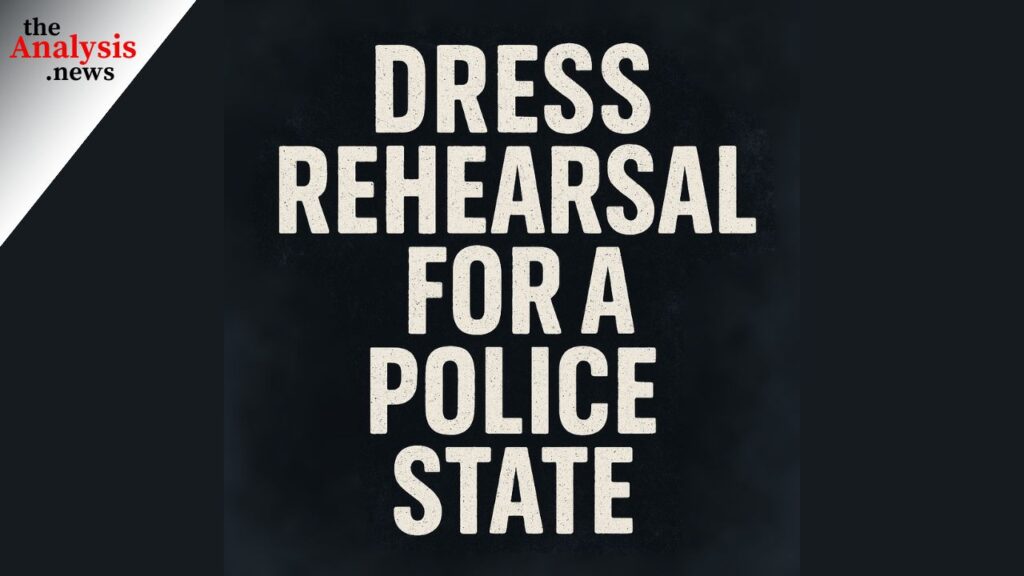


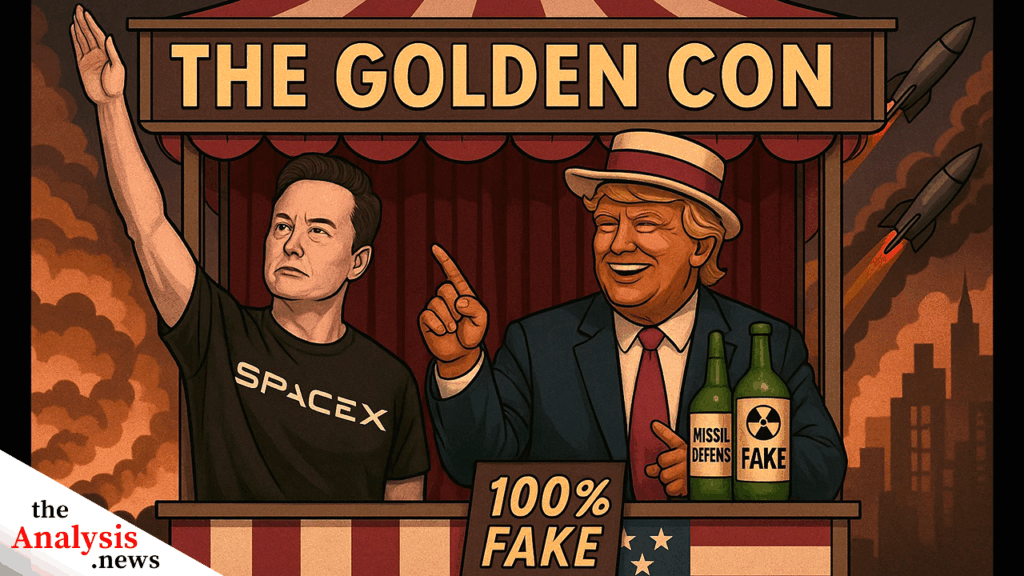
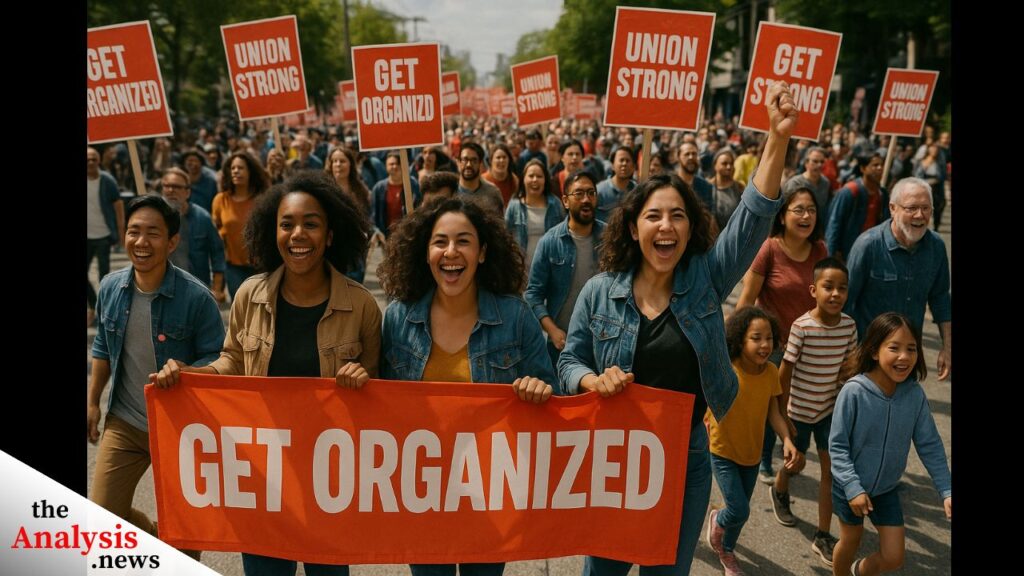
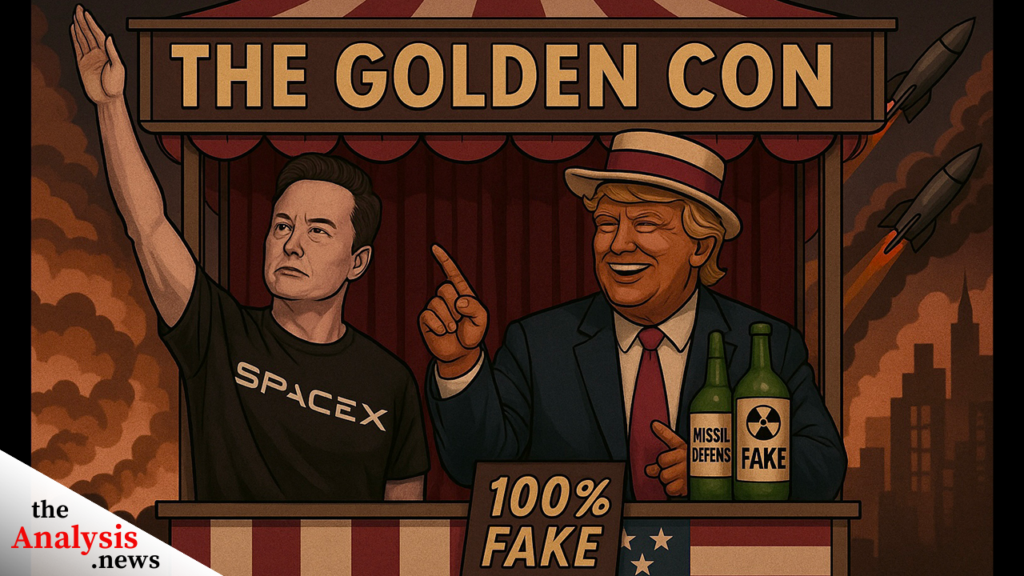
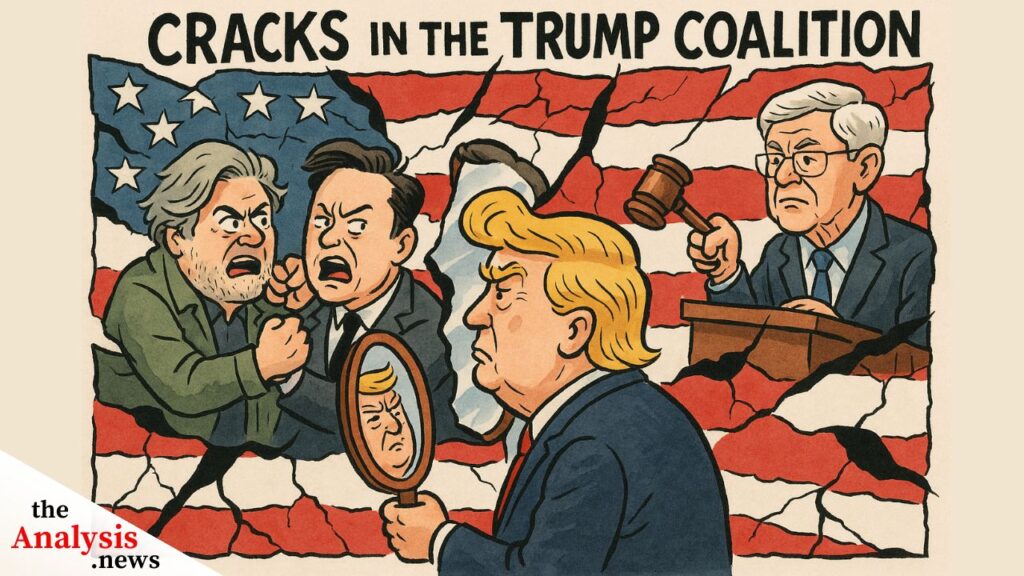

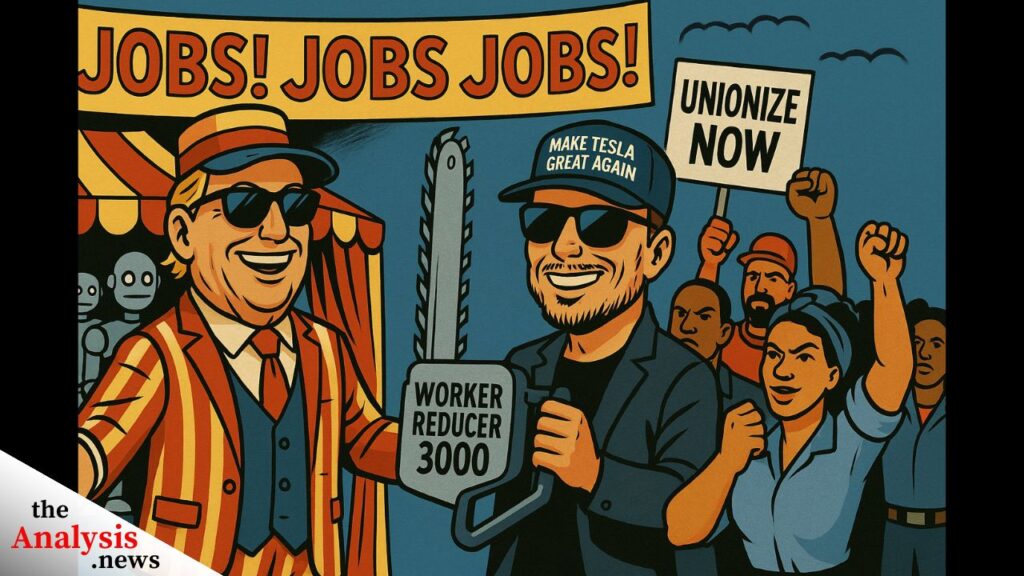
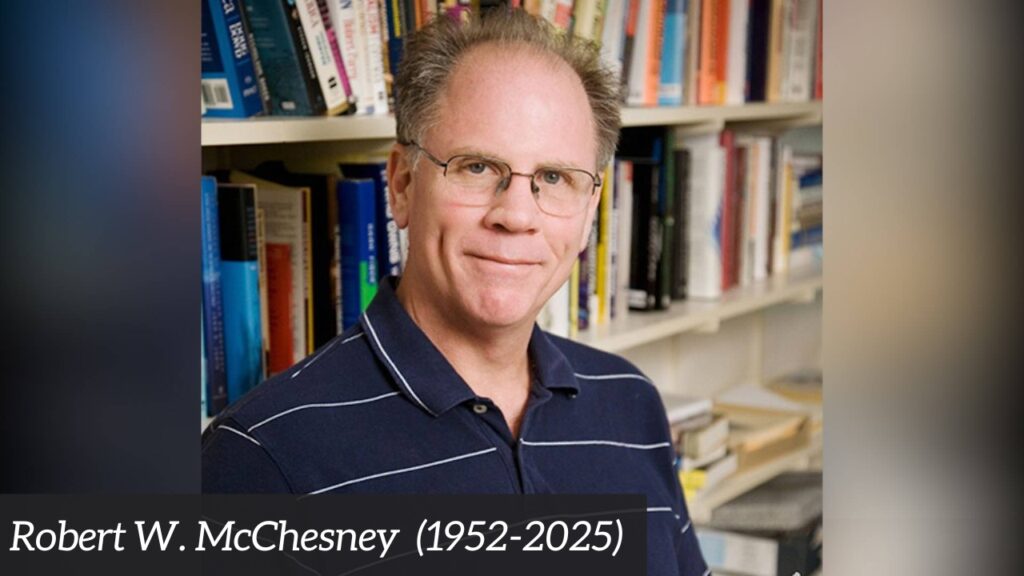
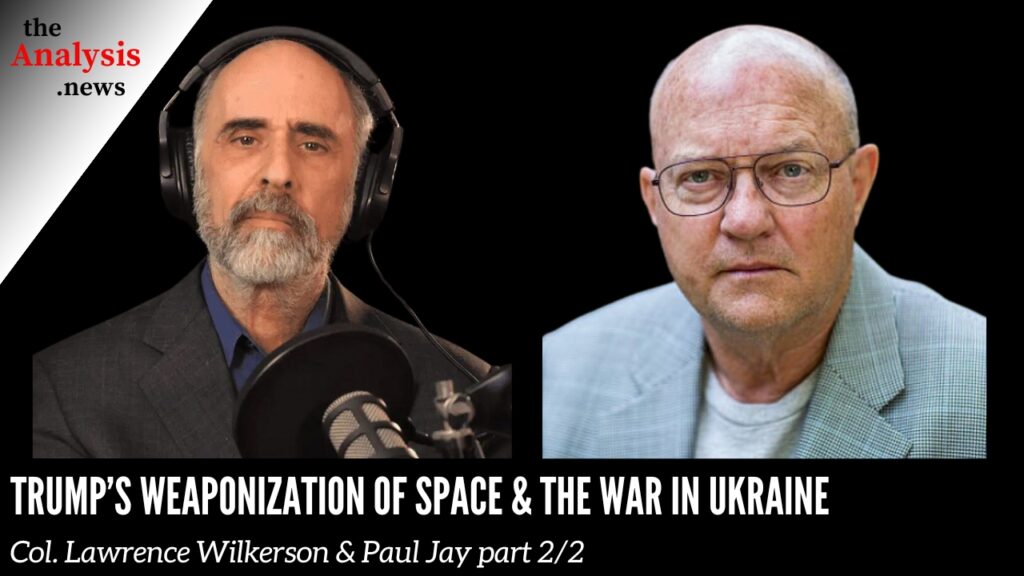
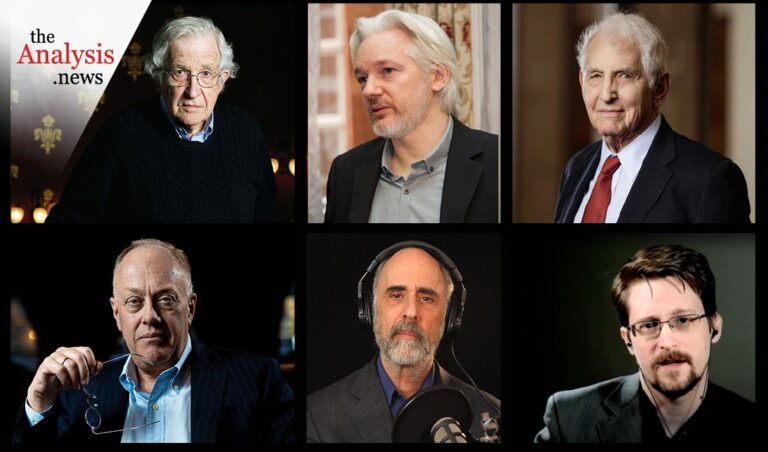
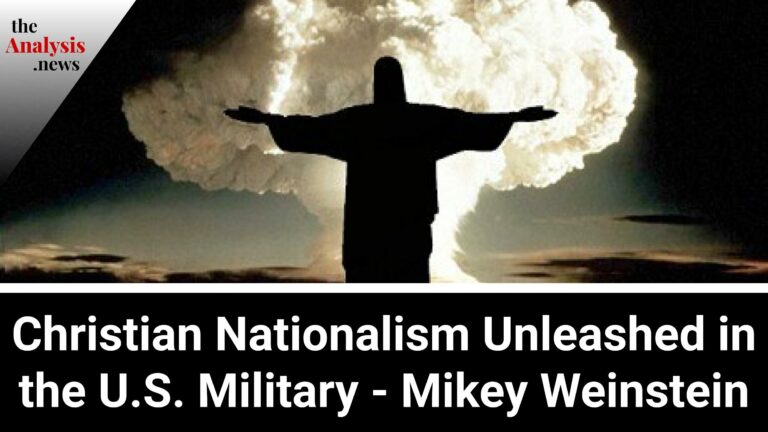
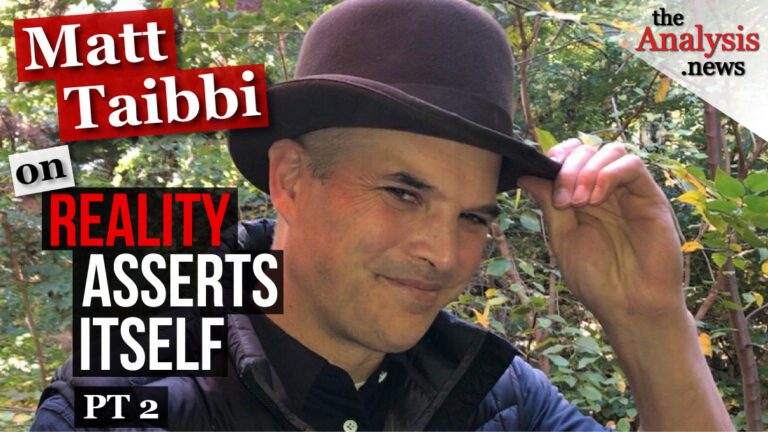
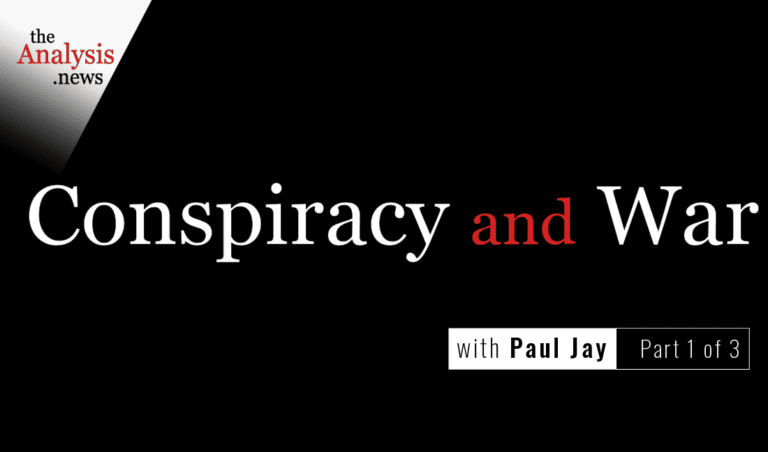

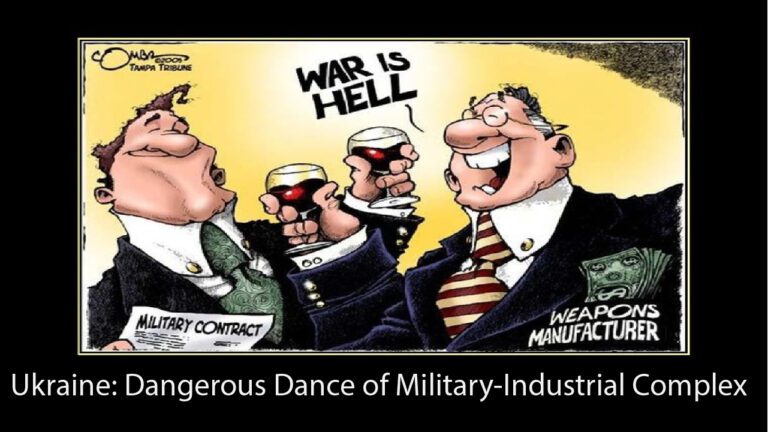
Maybe one other comment, a request that someone dig up or gather information
on the so-called Business Plot against Franklin Delano Roosevelt exposed by
General Smedley Butler. I heard about this a way long time ago as a kid in the
70’s. It seemed like there was a lot known about it then, but now it seems like
it is hushed up, a lot like how the great policies of FDR that really started
America down a Progressive Path were smashed and ultimately being reversed.
Around the time of Reagan, the Republicans were trying to mythologize him
into an updated FDR. They talked about putting him on Mount Rushmore …
thus the importance of these BS statues and public displays we have been
arguing about in recent history.
There is clearly a “conservative conspiracy” afoot for a long time, and I don’t
even think it is Conservative, I think it could more properly be called fascist.
It would be very informative for the public to understand a new interpretation
of the big picture of what 99.99% of the American people are up against.
I wrote Merv Griffin on my previous comment, and it somehow changed to Merry? 😉
I also wanted to say how Noam Chomsky always talks about the Powell Memorandum and how it focused and gave vision to the bigshots of the
right. I think there must have been a lot of other Powell Memorandum
type things that were not made public and never got leaked, and at least
on of them was how the media change, and how it could change in order
to “brainwash” ( I know, strong word ) the public into a new sheep or cattle
consumer worker mentality.
I worked a lot in so-called corporate America and they were always pushing
Republican candidates for President, and always trying to demonize unions
of course.
One thing I recall from neuroscience reading is that these kinds of mind
games work very well, until the subjects realize they are being worked,
and then they become immune to the games. But the games are much
more clever, and I would be willing to speculate that many, many of the
online voices we see and hear, and a lot in the news is faked, and the
people who work in the news know its faked.
What Leslie Stahl said in that video was just the tip of the iceberg.
Who is that in the thumbnail shot of Ronald and Nancy? Merry Griffin?